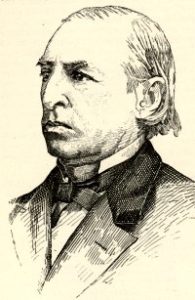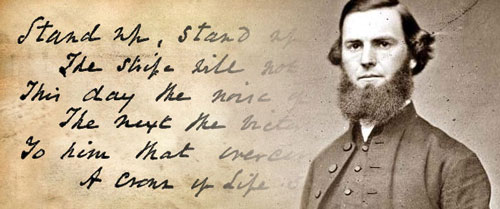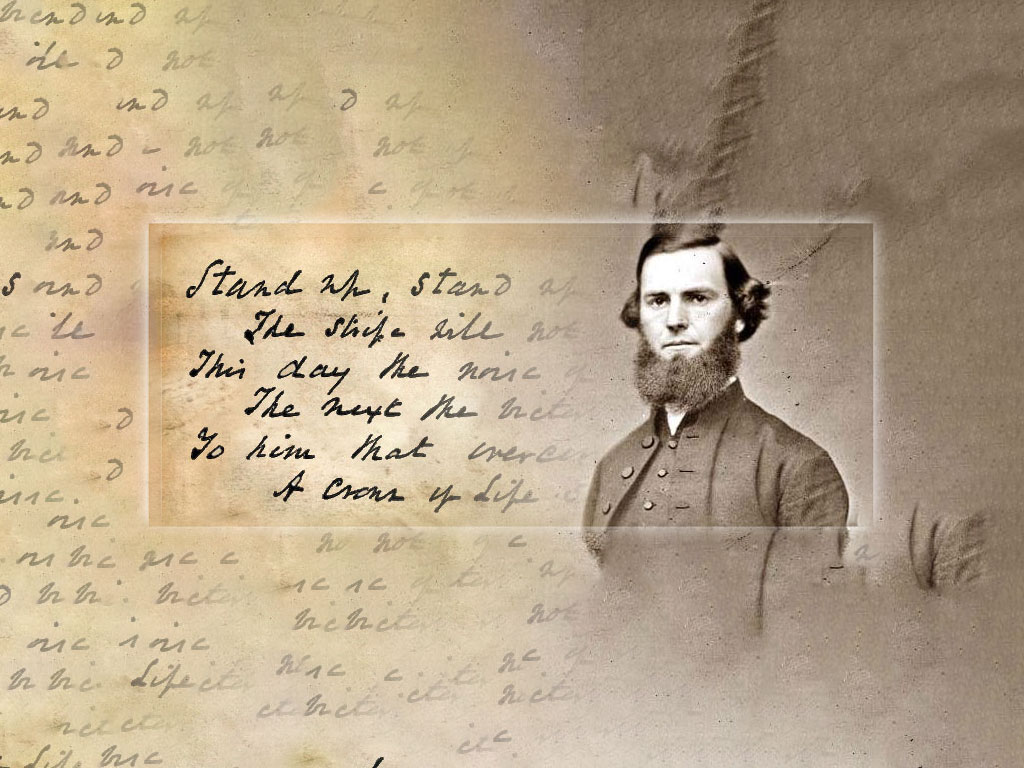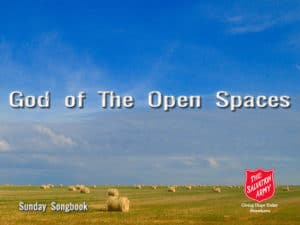Stand up, stand up for Jesus,
Ye soldiers of the cross!
Lift high His royal banner –
It must not suffer loss.
From victory unto victory
His army He shall lead,
Till every foe is vanquished,
And Christ is Lord indeed.
Stand up, stand up for Jesus!
The trumpet call obey;
Forth to the mighty conflict
In this His glorious day.
Ye that are men now serve Him
Against unnumbered foes;
Let courage rise with danger
And strength to strength oppose.
Stand up, stand up for Jesus!
Stand in His strength alone;
The arm of flesh will fail you;
Ye dare not trust your own.
Put on salvation armor,
And watching unto prayer,
Where duty calls or danger,
Be never wanting there.
Stand up, stand up for Jesus!
The strife will not be long;
This day the noise of battle,
The next the victor’s song.
To him that overcometh
A crown of life shall be,
He with the King of Glory
Shall reign eternally.
 Many of us have heard and sung Stand Up for Jesus countless times, including hearing it played by Salvation Army bands marching in the annual Rose Bowl Parade in California. But how familiar is the rather unusual story behind it? Although it was written by Reverend George Duffield as a poem, the inspiration for it came from a simple phrase uttered by Dudley Tyng as he lay dying.
Many of us have heard and sung Stand Up for Jesus countless times, including hearing it played by Salvation Army bands marching in the annual Rose Bowl Parade in California. But how familiar is the rather unusual story behind it? Although it was written by Reverend George Duffield as a poem, the inspiration for it came from a simple phrase uttered by Dudley Tyng as he lay dying.
Dudley had succeeded his father as pastor of a Philadelphia church in 1854, but when he began preaching strongly against slavery, he received complaints from some members of his congregation, and he resigned in 1856, moving on to establish his own church. Dudley also held noontime Bible studies at the YMCA and organised large rallies. At one of these in March 1958, five thousand men gathered. Dudley was overwhelmed and said, “I would rather this right arm were amputated at the trunk than that I should come short of my duty to you in delivering God’s message.” That day one thousand men came to faith in Christ!
Just two weeks later, Dudley Tyng was visiting a farm and watching a corn-thrasher. When he moved too close, his sleeve caught in the machine and his right arm was ripped from the socket, severing the main artery! Four days later, the arm was amputated, but Dudley’s death was imminent. He then spoke these words to his father: “Stand up for Jesus, Father, and tell my brethren of the ministry to stand up for Jesus.”
When he moved too close, his sleeve caught in the machine and his right arm was ripped from the socket Share on X
Reverend George Duffield attended Dudley Tyng’s funeral and was moved by those dying words to write the now familiar poem. He also preached on that topic the next Sunday, using Ephesians 6:14. A hymnal editor heard the poem, found suitable music for it and published the song. As with so many songs that have reached thousands of people after the writer’s death, one cannot help but think, “If only he could know!” In this case, one might say the same of the man who inspired the writer.
As with so many songs that have reached thousands of people after the writer’s death, Share on XWORDS: GEORGE DUFFIELD MUSIC: GEORGE WEBB
S.A.SONG BOOK, 1987 EDITION, #699; 2015 EDITION, #982
REFERENCE: MORGAN, ROBERT J., THEN SINGS MY SOUL








